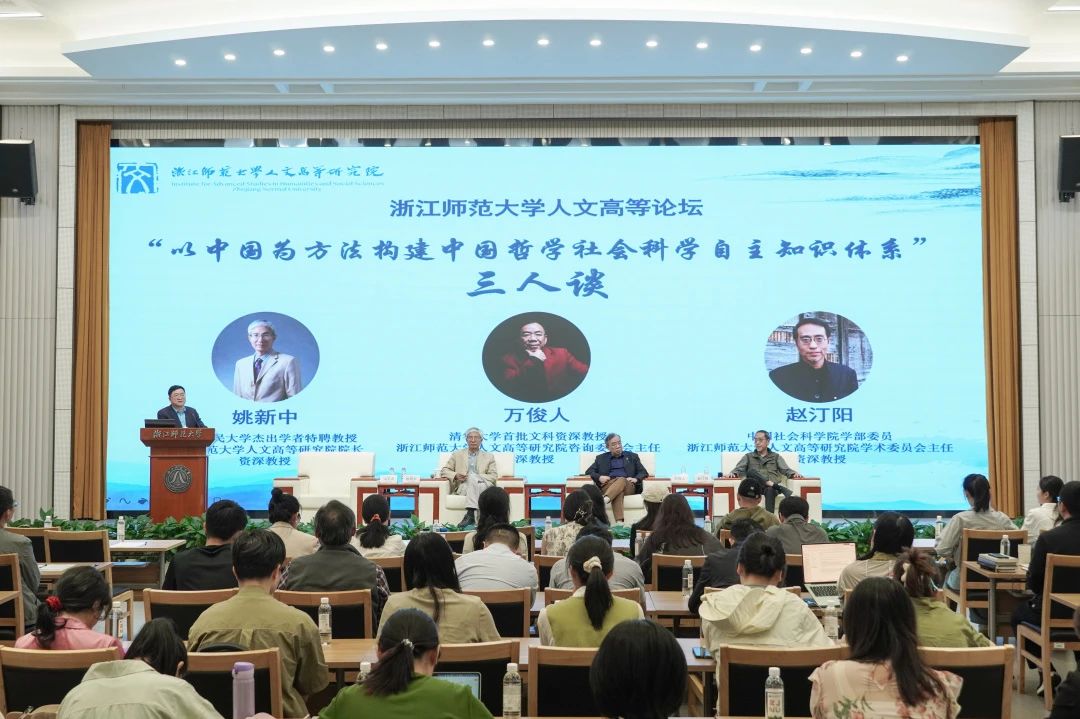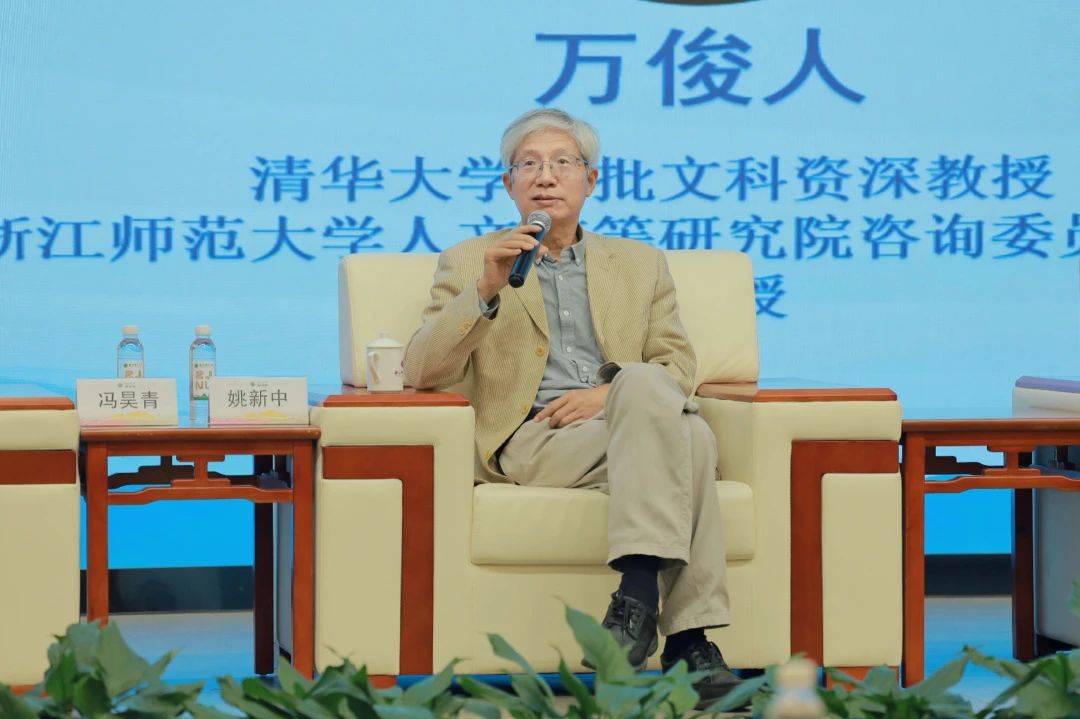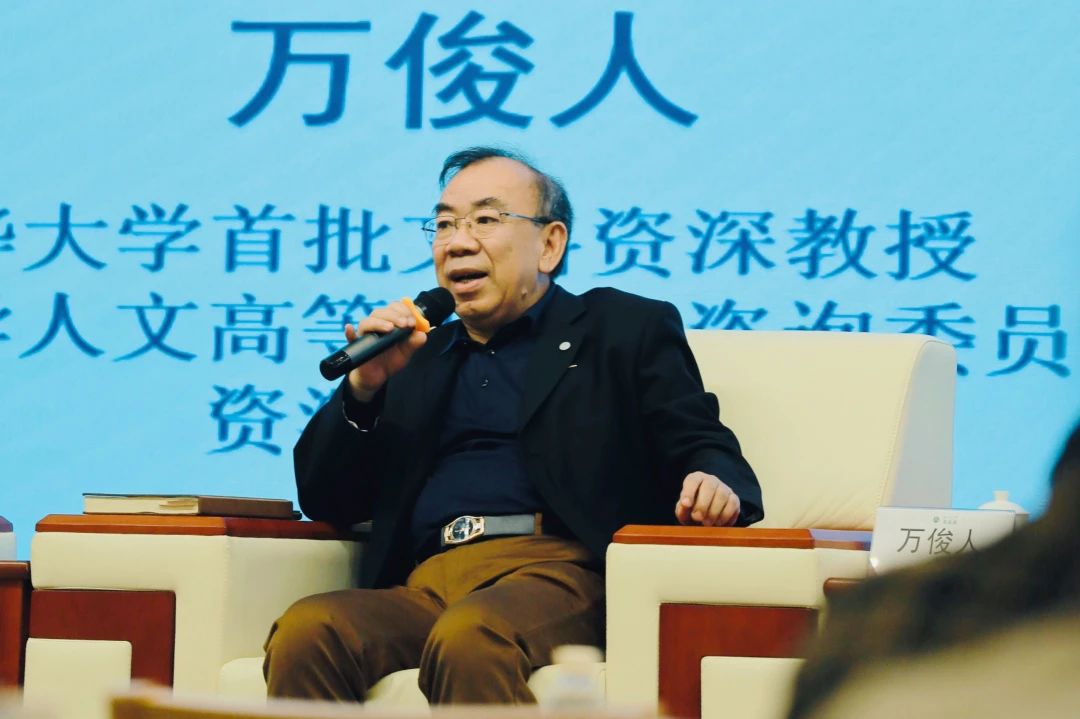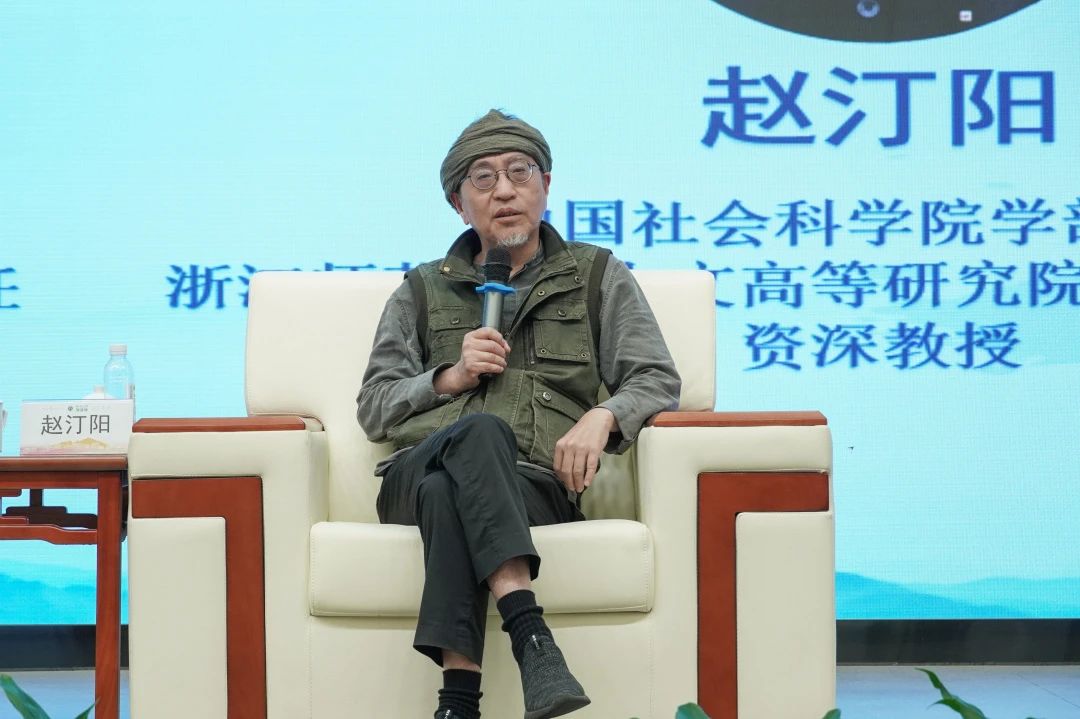On the morning of April 11, the academic lecture titled “Tripartite Dialogue on Cross-Cultural Perspectives and the Construction of China’s Knowledge System”was held in Building 2 of Zhengyang Conference Center at Zhejiang Normal University. The event featured three distinguished keynote speakers: Yao Xinzhong, Distinguished Professor and Renowned Scholar at Renmin University of China, Dean of the Institute for Advanced Humanistic Studies at Zhejiang Normal University, and Senior Professor; Wan Junren, Founding Senior Professor of Liberal Arts at Tsinghua University, Chair of the Advisory Committee of Zhejiang Normal University’s Institute for Advanced Humanistic Studies, and Senior Professor; Zhao Tingyang, Member of the Chinese Academy of Social Sciences, Chair of the Academic Committee of Zhejiang Normal University’s Institute for Advanced Humanistic Studies, and Senior Professor. The lecture was moderated by Feng Haoqing, Director of the Office of Humanities and Social Sciences at Zhejiang Normal University.

The academic lecture centered on the theme of “Constructing an Autonomous Knowledge System for Chinese Philosophy and Social Sciences with China as the Methodology.” It explored three interconnected topics: “Historical Opportunities and the Epochal Mission of Philosophy and Social Sciences,” “Current Realities, Challenges, and Pathways for Philosophy and Social Sciences,” and “Building an Independent Knowledge System for Chinese Philosophy and Social Sciences Through China as the Methodology.” The discussion emphasized grounding scholarly endeavors in China's unique context while fostering theoretical innovation and global academic dialogue.

Yao Xinzhong noted that the current structure of Chinese philosophy and social sciences does not align with the nation’s developmental stage or societal needs, necessitating timely adjustments. He emphasized interdisciplinary development alongside the cultivation of the “new liberal arts,” stressing that China’s autonomous knowledge system must be contextualized within global culture. Only through cross-cultural perspectives, he argued, can we address Sino-Western issues and construct a uniquely Chinese knowledge framework. Yao highlighted that while “telling China’s story” is straightforward, “telling it well” requires global respect for China’s stance and the establishment of universal ethical bottom lines.

Wan Junren linked the evolution of liberal arts to societal realities, advocating for the streamlining of applied liberal arts to meet modern demands. On constructing China’s knowledge system, he explained that “taking China as a methodology” involves both articulating China’s perspectives and experiences and engaging in equal, mutually enriching global dialogue. He underscored the necessity of a global vision, openness to diverse perspectives, and the pursuit of synergistic outcomes where “1+1>2.”

Zhao Tingyang defended the profound significance of liberal arts as the “pillar of the spiritual world.” He clarified that “taking China as a methodology” aims neither to create insular solutions for China nor universal prescriptions for the world, but to produce Chinese intellectual products worthy of global dissemination. Zhao proposed that a “world vision” transcends cultural limitations, advocating for the rejection of Western-centrism while promoting cross-civilizational exchange and mutual learning.

Feng Haoqing concluded by quoting Lenin: “The world does not satisfy humanity, so humanity resolves to change it through action.”Addressing the state of Chinese philosophy and social sciences, he urged the construction of an autonomous knowledge system that centers China as both subject and methodology, tackling national challenges with idealism and pragmatism.
By adopting a cross-cultural lens, the lecture delved into pathways for building China’s knowledge system, offering theoretical support and practical directions for addressing global issues through Chinese perspectives and advancing civilizational dialogue.
